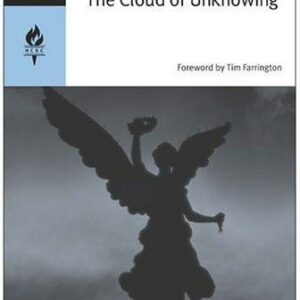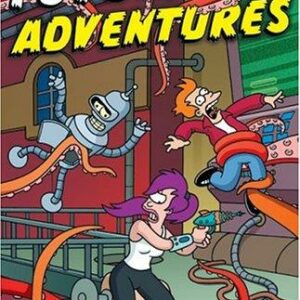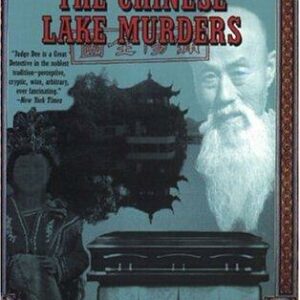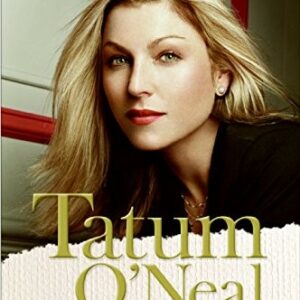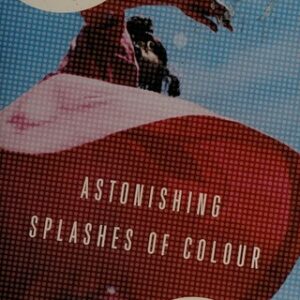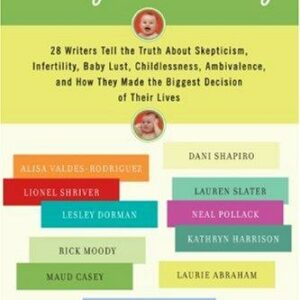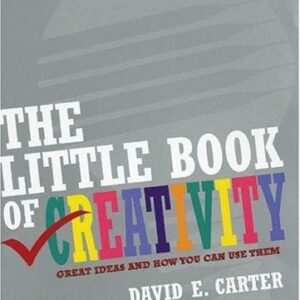Fifty-Two Stories
$18.00
| Title | Range | Discount |
|---|---|---|
| Trade Discount | 5 + | 25% |
- Description
- Additional information
Description
From the celebrated, award-winning translators of Anna Karenina and The Brothers Karamazov: a lavish volume of stories by one of the most influential short fiction writers of all time.
Anton Chekhov left an indelible impact on every literary form in which he wrote, but none more so than short fiction. Now, renowned translators Richard Pevear and Larissa Volokhonsky give us their renderings of fifty-two Chekhov stories. These stories, which span the complete arc of his career, reveal the extraordinary variety and unexpectedness of his work, from the farcically comic to the darkly complex, showing that there is no one single type of “Chekhov story.” They are populated by a remarkable range of characters who come from all parts of Russia and all walks of life, including landowners, peasants, soldiers, farmers, teachers, students, hunters, shepherds, mistresses, wives, and children. Taken together, they demonstrate how Chekhov democratized the form.
Included in this volume are tales translated into English for the first time, including “Reading” and “An Educated Blockhead.” Early stories such as “Joy,” “Anguish,” and “A Little Joke” sit alongside such later works as “The Siren,” “Big Volodya and Little Volodya,” “In the Cart,” and “About Love.” In its range, in its narrative artistry, and in its perceptive probing of the human condition, this collection promises profound delight.“A first-rate collection. . . . Pevear and Volokhonsky select stories—happily, one for each week of the year—that express that devotion to realism, even if sometimes broadly satirically. . . . Encounters between young and old, rich and poor, country and city people mark these stories. . . . It’s a marvel of imagination. A welcome gathering of work, some not often anthologized, by an unrivaled master of the short story form.” —Kirkus Reviews (starred review)
Praise for the translations of Richard Pevear and Larissa Volokhonsky
“The premier Russian-to-English translators of the era.” —David Remnick, The New Yorker
“The reinventors of the classic Russian novel for our times.” —PEN/Book-of-the-Month Club Translation Prize Citation
The Complete Short Novels
Anton Chekhov
“If the institution of Russian literature as a cultural force in the English-speaking world has survived and thrived against all odds in the culturally disparate 21st century, it is due mainly to the efforts of Richard Pevear and Larissa Volokhonsky.” —PopMatters
“A welcome gathering of the great storywriter’s atypical longer works. . . . Invaluable. . . . A heartening confirmation of the matchless skill and humanity of one of the true masters.” —Kirkus Reviews
The Brothers Karamazov
Fyodor Dostoevsky
“One finally gets the musical whole of Dostoevsky’s original.” —The New York Times Book Review
Crime and Punishment
Fyodor Dostoevsky
“Reaches as close to Dostoevsky’s Russian as is possible in English . . . The original’s force and frightening immediacy is captured.” —Chicago Tribune
Demons
Fyodor Dostoevsky
“The merit . . . resides in the technical virtuosity of the translators . . . They capture the feverishly intense, personal explosions of activity and emotion that manifest themselves in Russian life.” —The New York Times Book Review
War and Peace
Leo Tolstoy
“An extraordinary achievement . . . Wonderfully fresh and readable . . . The English-speaking world is indebted to these two magnificent translators.” —The New York Review of Books
“A major new translation . . . [which] brings us the palpability [of Tolstoy’s characters] as perhaps never before. . . . Pevear and Volokhonsky’s new translation gives us new access to the spirit and order of the book.” —The New Yorker
“Shimmering. . . . [It] offers an opportunity to see this great classic afresh, to approach it not as a monument but rather as a deeply touching story about our contradictory human hearts.” —The Washington Post
“Tolstoy’s War and Peace has often been put in a league with Homer’s epic poems; it seems to me that the same might be said for Pevear and Volokhonsky’s translation of his great novel. . . . Their efforts convey a much closer equivalent in English to the experience of reading the original.” —New England Review
ANTON CHEKHOV was born in 1860 in southern Russia. The grandson of a serf, he became a physician, paying for his education by selling satirical and humorous sketches to the newspapers. He soon turned to serious short stories, winning the Pushkin Prize in 1887, and went on to write plays, including Uncle Vanya, The Seagull, Three Sisters, and The Cherry Orchard, and novellas, including The Steppe and The Duel. He died of tuberculosis in 1904.
Together, RICHARD PEVEAR and LARISSA VOLOKHONSKY have translated works by Chekhov, Dostoevsky, Tolstoy, Gogol, Bulgakov, Leskov, and Pasternak. They were twice awarded the PEN/Book-of-the-Month Club Translation Prize (for Dostoevsky’s The Brothers Karamazov and Tolstoy’s Anna Karenina). They are married and live in France.Romance with a Double Bass
The musician bowsky was walking from town to the dacha of Prince Bibulov, where on the occasion of a wedding engagement an evening of music and dance was “to be held.” On his back rested an enormous double bass in a leather case. Bowsky walked beside the river, which rolled its cool waters along, if not majestically, at least quite poetically.
“Why not go for a swim?” he thought.
Without further thinking, he undressed and immersed his body in the cool stream. The evening was magnificent. Bowsky’s poetic soul began to tune in with the harmony of his surroundings. But what a sweet feeling came over his soul when, having swum some hundred yards, he saw a beautiful girl sitting on the steep bank and fishing. He held his breath and stopped under an influx of heterogeneous feelings: memories of childhood, pining for the past, awakened love . . . God, and here he thought he was no longer capable of love! After losing faith in humankind (his ardently loved wife had run off with his friend, the bassoon Muttkin), his breast had been filled with a sense of emptiness, and he had turned into a misanthrope.
“What is life?” he had asked himself more than once. “What do we live for? Life is a myth, a dream . . . ventriloquism . . .”
But, standing before this sleeping beauty (it was not hard to notice she was asleep), suddenly, against his will, he felt in his breast something resembling love. He stood before her for a long time, devouring her with his eyes . . .
“But enough . . . ,” he thought, letting out a deep sigh. “Farewell, wondrous vision! It’s time I went to His Excellency’s ball . . .”
And glancing once more at the beauty, he was just about to swim back when an idea flashed in his mind.
“I must leave her something to remember me by!” he thought. “I’ll attach something to her line. It will be a surprise from ‘the unknown one.’ ”
Bowsky quietly swam to the bank, picked a big bouquet of field and water flowers, and, binding it with a stalk of goosefoot, attached it to the line.
The bouquet sank to the bottom and dragged the pretty float down with it.
Discretion, the laws of nature, and our hero’s social situation demand that the romance should end at this point, but—alas!—the author’s fate is implacable: owing to circumstances beyond his control, the romance did not end with the bouquet. Counter to common sense and the nature of things, the poor and unaristocratic double bassist was to play an important role in the life of an aristocratic and rich beauty.
Swimming to the bank, Bowsky was astounded: he did not see his clothes. They had been stolen . . . While he was admiring the beauty, unknown villains had stolen everything except the double bass and top hat.
“Damnation!” exclaimed Bowsky. “Oh, people, you brood of vipers! I am not so much indignant at the loss of the clothes (for clothes are perishable) as at the thought that I shall have to go naked, thereby trespassing against public morality.”
He sat down on the case of his double bass and started thinking about how to get out of his terrible situation.
“I can’t very well go naked to Prince Bibulov’s!” he thought. “There’ll be ladies there! And besides, along with my trousers, the thieves stole the rosin in my pocket!”
He thought for a long time, tormentingly, until his temples hurt.
“Hah!” he remembered at last. “In the bushes near the bank there’s a little bridge . . . I can sit under that little bridge until night falls, and in the evening, under cover of darkness, I’ll make my way to the nearest cottage . . .”
Clinging to that thought, Bowsky put on his top hat, hoisted the double bass on his back, and trudged off to the bushes. Naked, with a musical instrument on his back, he resembled some ancient mythical demigod.
Now, reader, while my hero is sitting under the bridge, giving himself up to sorrow, let us leave him for a time and turn to the girl who was fishing. What became of her? The beauty, waking up and not seeing the float in the water, hastily pulled on the line. The line taut- ened, but the float and hook did not come to the surface. Apparently Bowsky’s bouquet had soaked up water, swelled, and become heavy.
“Either a big fish got caught,” thought the girl, “or the hook got snagged.”
Having pulled at the line a little more, the girl decided that the hook got snagged.
“What a pity!” she thought. “And fish bite so well in the evening. What am I to do?”
And without further thought, the eccentric girl threw off her ethereal clothes and immersed her beautiful body in the stream up to her marble shoulders. To undo the line, the hook, and the bouquet was not easy, but patience and effort won out. After some quarter of an hour, the beauty, radiant and happy, emerged from the water, holding the hook in her hand.
But ill fate lay in wait for her. The scoundrel who had stolen Bowsky’s clothes also stole her dress, leaving her only the can of worms.
“What am I to do now?” she wept. “Can I go looking like this? No, never! Better to die! I’ll wait till it gets dark; then, in the darkness, I’ll go to Aunt Agafya and send her home for a dress . . . And meanwhile I’ll go and hide under the little bridge.”
My heroine, choosing where the grass was higher and crouching down, scurried to the little bridge. Slipping under it, she saw a naked man with a musician’s mane and a hairy chest, cried out and fainted.
Bowsky was also frightened. At first he took the girl for a naiad.
“Isn’t she a river siren come to entice me?” he thought, and that surmise flattered him, because he had always had a high opinion of his looks. “If she’s not a siren, but a human being, how explain this strange transformation? Why is she here under the bridge? And what’s the matter with her?”
While he was debating all these questions, the beauty came to her senses.
“Don’t kill me!” she whispered. “I’m Princess Bibulova. I beseech you! You’ll be given a lot of money! I was untangling my fishing line in the water, and some thieves stole my new dress, shoes, and everything!”
“Miss!” said Bowsky in a pleading voice. “I also had my clothes stolen. And along with my trousers they also made off with the rosin that was in my pocket!”
Those who play double basses and trombones are usually unresourceful, but Bowsky was a pleasant exception.
“Miss!” he said a while later. “I see you’re embarrassed at the sight of me. But you must agree that I have the same grounds for not leaving this place as you do. Here’s what I’ve come up with: how would you like to lie in the case of my double bass and cover yourself with the lid? That will conceal me from you . . .”
Having said that, Bowsky took the instrument out of the case. For a moment it seemed to him that by yielding up the case he was blaspheming against the sacredness of art, but his hesitation did not last long. The beauty lay down in the case and curled up, and he tightened the straps and rejoiced that nature had endowed him with such intelligence.
“Now, miss, you don’t see me,” he said. “Lie there and be at peace. When it gets dark, I’ll carry you to your parents’ home. I can come back here later for my double bass.”
When darkness fell, Bowsky hoisted the case with the beauty on his shoulders and trudged to Bibulov’s dacha. His plan was this: he will come to the first cottage and obtain some clothing, then he will go on . . .
“There’s no bad without some good,” he thought, stirring up the dust with his bare feet and bending under the burden. “For the heartfelt share I’ve taken in the princess’s fate, Bibulov is sure to reward me generously.”
“Are you comfortable, miss?” he asked in the tone of a cavalier galant inviting her to a quadrille. “Kindly do not stand on ceremony: treat my case as if it were your own home.”
Suddenly the gallant Bowsky fancied that ahead of him, shrouded in darkness, two human figures were walking. He peered intently and realized that this was not an optical illusion: the figures were indeed walking and even carrying some bundles in their hands . . .
“Aren’t these the thieves?” flashed through his mind. “They’re carrying something. It’s probably our clothes!”
Bowsky set the case down by the roadside and ran after the figures.
“Stop!” he shouted. “Stop! Seize them!”
The figures turned and, seeing the pursuit, took to their heels . . . The princess heard the quick footsteps and the shouts of “Stop!” for a long time. Finally, all fell silent.
Bowsky got carried away by the pursuit, and the beauty might well have spent a long time lying in the field by the roadside had it not been for a lucky play of chance. It chanced that just then Bowsky’s colleagues, the flute Buzzkin and the clarinet Wavarmov, came along the same road. Stumbling upon the case, they looked at each other in surprise and spread their arms.
“A double bass!” said Buzzkin. “Hah, it’s our Bowsky’s double bass! How did it wind up here?”
“Something probably happened to Bowsky,” decided Wavarmov. “Either he got drunk, or he was robbed . . . In either case, it wouldn’t be right to leave the instrument here. Let’s take it with us.”
Buzzkin hoisted the case on his back, and the musicians went on.
“It’s heavy, damn it!” the flute grumbled on the way. “Not for anything in the world would I agree to play such a monster . . . Oof!”
On arriving at Prince Bibulov’s dacha, the musicians put the case in the area reserved for the orchestra and went to the buffet.
Just then the chandeliers and sconces were being lit. The fiancé, Court Councillor Flunkeyich, a handsome and affable official from the Ministry of Transportation, was standing in the middle of the reception room, his hands in his pockets, talking with Count Flaskov. They were discussing music.
“In Naples, Count,” Flunkeyich was saying, “I was personally acquainted with a fiddler who literally performed miracles. You won’t believe it! On a double bass . . . on an ordinary double bass, he pulled off such devilish trills, it was simply awful! He played Strauss waltzes.”
“Come now, that’s impossible . . .” The count doubted him.
“I assure you! He even performed a Liszt rhapsody. I lived in the same room with him and having nothing to do I even learned from him to play a rhapsody of Liszt on the double bass.”
“A rhapsody of Liszt . . . Hm . . . you’re joking . . .”
“You don’t believe it?” Flunkeyich laughed. “I’ll prove it to you right now! Let’s go to the orchestra!”
The fiancé and the count went to the orchestra. They approached the double bass, quickly started undoing the straps . . . and—oh, horror!
But here, while the reader, giving free rein to his imagination, pictures the outcome of the musical dispute, let us turn back to Bowsky . . . The poor musician, having failed to catch the thieves and gone back to the place where he left the case, could not locate the precious burden. Totally at a loss, he walked up and down the road several times and, not finding the case, decided that he had come to the wrong road . . .
“This is awful!” he thought, clutching his hair and turning cold. “She’ll suffocate in the case! I’m a murderer!”
Until midnight Bowsky walked the road and looked for the case, but finally, out of strength, he headed back to the little bridge.
“I’ll search at dawn,” he decided.
The search at dawn produced the same result, and Bowsky decided to wait under the bridge till nightfall . . .
“I’ll find her!” he muttered, taking off his top hat and seizing his hair. “I may look for a whole year, but I’ll find her!”
To this day peasants living in the area we have described tell that, at night, by the little bridge, one can see a naked man, overgrown with hair and wearing a top hat. Every now and then under the little bridge the wheezing of a double bass can be heard.
1886US
Additional information
| Dimensions | 0.8700 × 5.1000 × 7.9000 in |
|---|---|
| Series | |
| Imprint | |
| Format | |
| ISBN-13 | |
| ISBN-10 | |
| Author | |
| Audience | |
| BISAC | |
| Subjects | pevear and volokhonsky, book lover, book lovers gifts, classic books, fiction books, long story short, book lover gifts, short story collections, short stories collections, gifts for book lovers, friend gifts for women, russian books, chekhov, Chekov, short story books for adults, chekhov short stories, dead souls, richard pevear and larissa volokhonsky, collection, FIC029000, classic, fiction, mystery, classics, FIC019000, book lovers, short story, Literature, Anton Chekhov, poems, literary fiction, gifts for readers, plot, russian, literary gifts |


